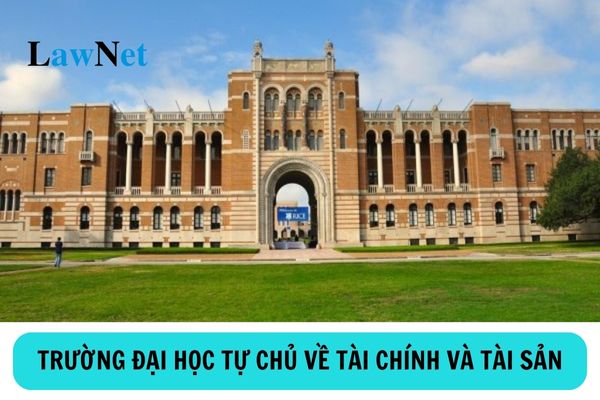What is the accountability for providing explanation of higher education institutions having autonomy in Vietnam?
What is the accountability for providing explanation of higher education institutions having autonomy in Vietnam?
According to Clause 6, Article 32 of the Law on Higher Education 2012 (mended by Clause 17, Article 1 of the Amended Law on Higher Education 2018), accountability of a higher education institution to its owner, students, the public, competent authorities and relevant parties include:
- Providing description of implementation of quality policies and standards, promulgation and implementation of its regulations; responsibility for failure to adhere to regulation or commitment to quality;
- Publishing of annual reports on performance indicators on its website; submit periodic and irregular reports to the owners and competent authorities;
- Providing explanation for salaries, bonuses and other benefits of managers of the higher education institution for the general assembly of employees; have annual financial statements, investment and purchases audited, provide explanation for operation of the higher education institution for its owner and competent authorities;
- Publishing of annual financial statements and other contents on its website in accordance with regulations of the Ministry of Education and Training;
- Other contents prescribed by law

What is the accountability for providing explanation of higher education institutions having autonomy in Vietnam? (Image from the Internet)
What are the conditions for higher education institutions in Vietnam to have autonomy?
Based on Clause 2, Article 32 of the Law on Higher Education 2012 (amended by Clause 17, Article 1 of the Amended Law on Higher Education 2018), the conditions for higher education institutions in Vietnam to have autonomy are as follows:
- The higher education institution has established a higher education institution council, has been recognized and certified as meeting quality standards by a legitimate education quality accreditation organization;
- The higher education institution has enacted and implemented regulations on organization and operation, financial regulations, internal management procedures, and policies ensuring quality that meet the state standards;
- The higher education institution has decentralized autonomy and responsibility for accountability to each unit and individual within the higher education institution;
- The higher education institution shall publicize the conditions for ensuring quality, accreditation results, graduation employment rates, and other information as required by law.
What are the principles for managing and utilizing assets of public higher education institutions?
Pursuant to Article 67 of the Law on Higher Education 2012 (amended by Clause 35, Article 1 of the Amended Law on Higher Education 2018), following regulations are stipulated:
Management and Utilization of Assets of Higher Education Institutions
1. Assets of public higher education institutions are managed and used following the principles of managing and using public assets. Higher education institutions may use public assets for business activities, leasing, joint ventures, or partnerships as prescribed by law to develop higher education, ensuring the principles of conservation and development, suitable for the educational environment.
2. Assets of private higher education institutions and non-profit private higher education institutions are managed and used according to the following principles:
a) State assets and land use rights conferred to the higher education institution must be managed and used as per the law on managing and using public assets and land law; they shall not be converted into private ownership under any form. Conversion of use purposes for other state assets must adhere to the principles of conservation and development; conversion of land use purposes shall be conducted according to land law;
b) Unified, indivisible common assets include assets granted, sponsored, donated, or given and other assets stipulated by law as unified, indivisible common property, belonging to the school community, managed and used by the school council or higher education institution council as prescribed by law or at the request of the asset transferor (if any) for the development purpose of the higher education institution and community interest, ensuring conservation and development; they shall not be converted into private ownership under any form.
In the event of capital transfer of the higher education institution, the unified, indivisible common asset shall not be included in the asset valuation of the higher education institution.
In the event of dissolution of the higher education institution, the unified, indivisible common assets shall be regarded as community property managed and used by competent state authorities for the development of higher education;
c) For assets not stipulated in points a and b of this clause, the higher education institution has the right to self-decide on management, use, disposition, and takes responsibility as per the Law on Enterprises and other relevant laws.
Thus, the principles for managing and utilizing assets of public higher education institutions are the management, use of public assets principles.

